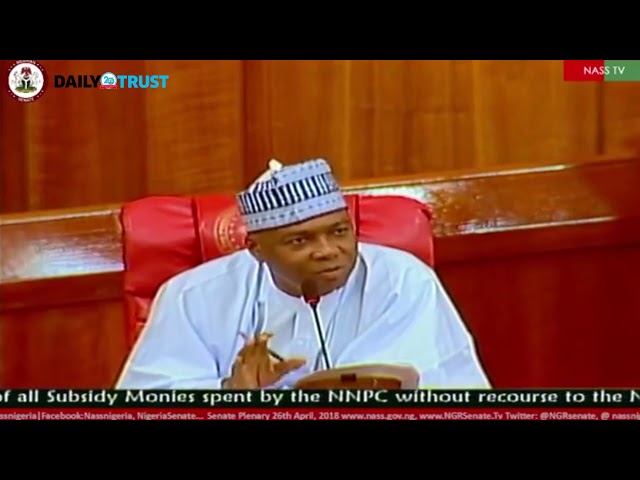The 8th Senate, not IGP Idris, is real enemy of democracy
The Senate of the Federal Republic of Nigeria, on Wednesday the 9th of May, 2018, said it made a resolution declaring the Inspector General of Police (IGP) “Enemy of Democracy”. The Senate said by this resolution, the IGP has been rendered unfit to hold any public office henceforth in Nigeria or elsewhere. Obviously, the Senate […]


The Senate of the Federal Republic of Nigeria, on Wednesday the 9th of May, 2018, said it made a resolution declaring the Inspector General of Police (IGP) “Enemy of Democracy”. The Senate said by this resolution, the IGP has been rendered unfit to hold any public office henceforth in Nigeria or elsewhere.
Obviously, the Senate was irked by the inability of the IGP to appear personally before it in response to its invitation to him in relation to the arrest, escape from custody, hospitalization and arraignment of one of its own, Senator Dino Melaye.
Mr. Melaye was invited by the Nigeria Police in connection with a criminal offence, and he refused to honor the invitation. A letter was written by the Police to the President of the Senate, Bukola Saraki to intervene and convince Mr. Melaye to respond to the invitation. Still, Mr. Melaye refused to respond.
In the heat of Police investigations into the crimes Mr. Melaye was being accused of, he was intercepted at the Airport trying to leave the country, and was detained by the men of the Nigerian Immigration Service, his passport having been seized. The “distinguished” Senator snatched his passport from the Immigration officers and ran out of the custody of the Immigration Service to the residence of the Senate President who harbored him for some time before he sneaked to his house.
Mr. Melaye was later arrested at his home and was being taken to court in Lokoja when the convoy was waylaid by hoodlum who distracted the Police and paved way for him to jump out and escape from Police custody. He was later Re-arrested the same way the hoodlums who masterminded his escape were arrested. They turned out to be his brother and cousin. Both are already facing prosecution at the appropriate courts.
He was taken to the National hospital where he stayed for days before doctors officially certified him fit to be discharged. In fact, doctors’ report has it that there was virtually no health issue that could hinder any of his activities. But the Senator deliberately refused to leave the hospital, causing the Police to take him to the court on a stretcher. The Police were convinced that he was only playing tricks, having observed him to be entertaining his visitors with songs and delirious dance steps.
It was over this matter that the Senate wanted the IGP to appear before it. At a time when the country is being faced with so much security issues that require the rapt attention of the Police chief, he decided to send a representative, a Deputy Inspector General of Police in charge of Operation. The Senate was not impressed; they wanted the man who at that time was in Kaduna state, where over 60 Nigerians lost their lives to gunmen attacks.
Why the Senate would not want a representative of the IGP beats the imagination. These are people who are in the red chambers as representatives of about 180 million Nigerians. One would have expected that the principle of representation is already part of their system.
It is also clear, by virtue of the provisions of the Police Act, that a Deputy Inspector General of Police and an Assistant Inspector General of Police are technically IGPs. Since the letter to the IGP was not addressed Ibrahim Idris as an individual, but to the office of the IGP, any of the designated IGPs can as well do. In fact, the DIG in charge of operations is surely the most appropriate to provide all relevant information regarding the Melaye saga.
Now, by declaring the IGP “Enemy of Democracy” and unfit to hold public office henceforth, the Senate is only treading a familiar rough ground. It did same in a matter involving it and the incumbent governor of Kaduna state. The Nigerian courts, in 2004 declared such a resolution null and void. Today, the same El-Rufai that the Senate said is unfit to hold public office is a sitting governor, validly elected by the people of Kaduna state.
This 8th Senate, which has the highest number of docked members so far in the history of the Nigerian Senate, including its president Bukola Saraki, has a worrisome penchant for unruly behavior and disregard for law and order.
Ibrahim Bala, Abuja
